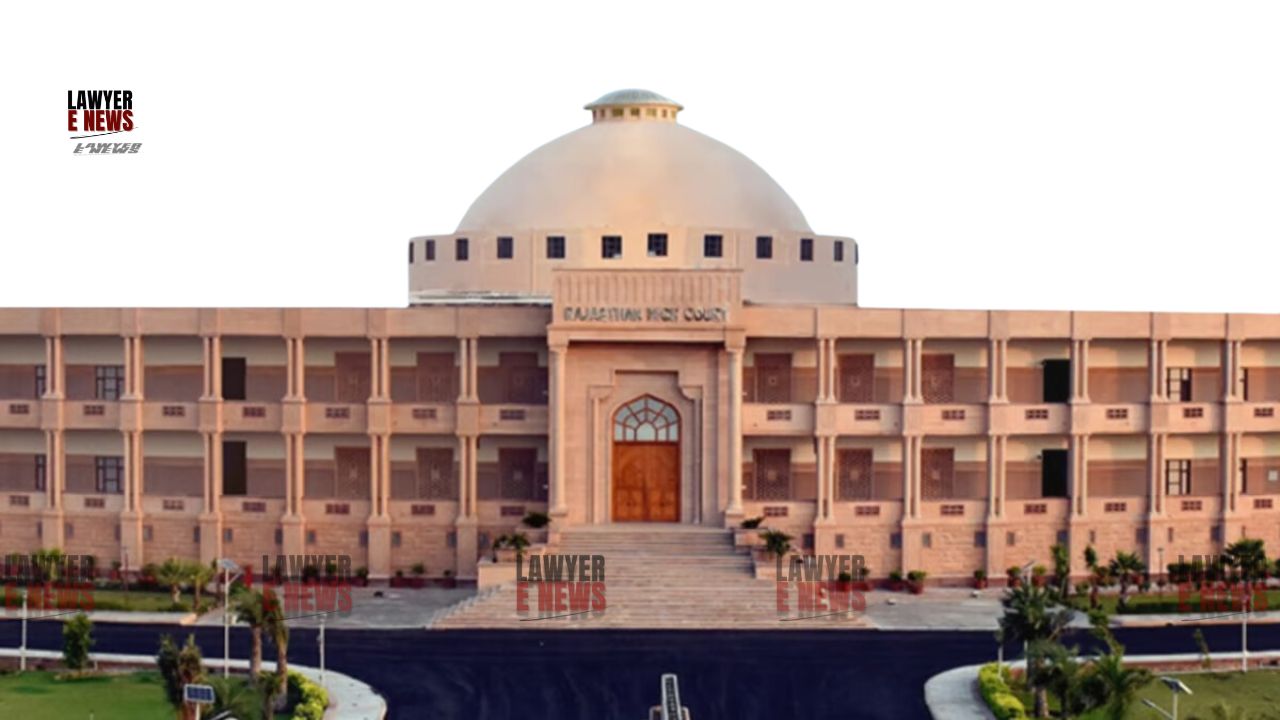-
by Admin
15 February 2026 5:35 AM



Rajasthan High Court dismissed an election petition filed by Jitendra Kumar challenging the 2023 election results for Assembly Constituency 176 (Nathdwara). The petitioner alleged discrepancies in the affidavits of the winning candidate, Vishvaraj Singh, and others. The Court rejected the petition under Order VII Rule 11 of the CPC, citing a lack of cause of action and mis-joinder of parties.
Jitendra Kumar, who contested the 2023 Assembly elections in Nathdwara, filed an election petition challenging the election of Vishvaraj Singh. The petitioner claimed that Vishvaraj Singh and other candidates provided false information in their affidavits, which materially affected the election results. He sought to have their nominations rejected and the election declared void.
The petitioner argued that discrepancies in the affidavits, particularly regarding the income and assets of Vishvaraj Singh and his wife, Mahima Kumari, warranted the rejection of their nominations under the Representation of the People Act, 1951.
The respondents contended that the inclusion of Mahima Kumari, who was not a contesting candidate, was improper, making the petition defective due to mis-joinder of parties.
The respondents also argued that the petition failed to disclose a valid cause of action, as the discrepancies claimed by the petitioner were not substantial or capable of invalidating the election.
After examining the affidavits of Vishvaraj Singh and Mahima Kumari, the Court found no discrepancies regarding the disclosure of their assets and income. The petitioner’s claims were based on a misreading of the affidavits, as both respondents had correctly reflected their respective financial details.
The Court held that Mahima Kumari was improperly included in the petition, as she was neither a contesting candidate nor a returned candidate. Her inclusion constituted a mis-joinder of parties under Section 82 of the Representation of the People Act, 1951.
The Court found that the petitioner failed to establish any cause of action under Sections 100 and 101 of the Act. The alleged discrepancies did not affect the election outcome, and no substantial legal grounds were provided to invalidate the election. The Court cited Supreme Court precedents, including Madanuri Sri Rama Chandra Murthy vs. Syed Jalal (2017), to emphasize that frivolous litigation must be dismissed at the threshold.
The Court dismissed the election petition, concluding that it lacked a valid cause of action and was marred by mis-joinder of parties. The Court also rejected the petitioner’s request for reliefs, stating that none of the claims could be granted under the law.
The petitioner was ordered to bear the costs of the litigation, as the Court deemed the petition frivolous and without merit.
The Rajasthan High Court’s dismissal of the election petition reinforces the importance of clear and substantial grounds when challenging election results. Frivolous petitions, particularly those lacking a valid cause of action, will be dismissed to prevent unnecessary litigation.
Date of decision: 10/10/2024
